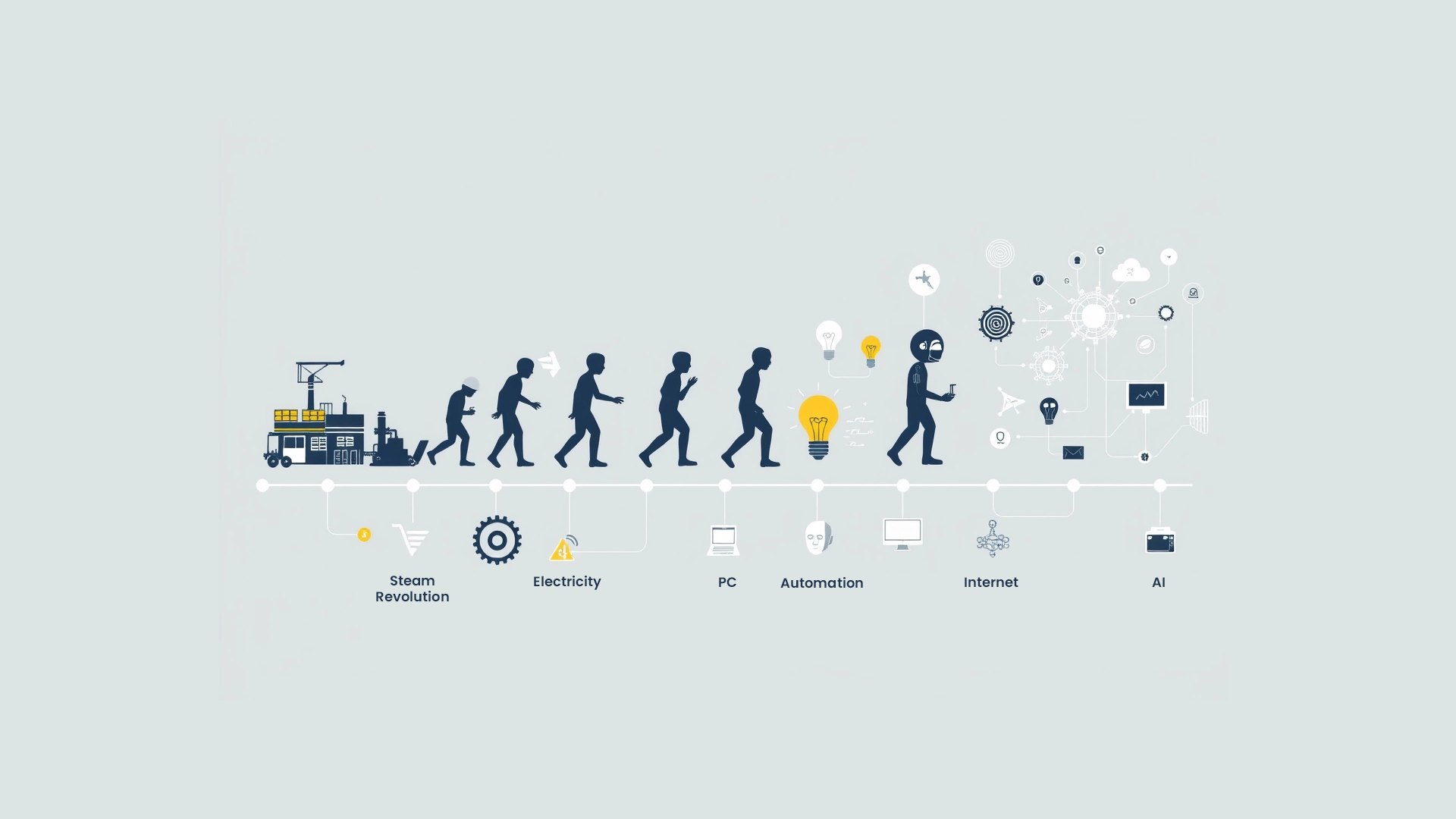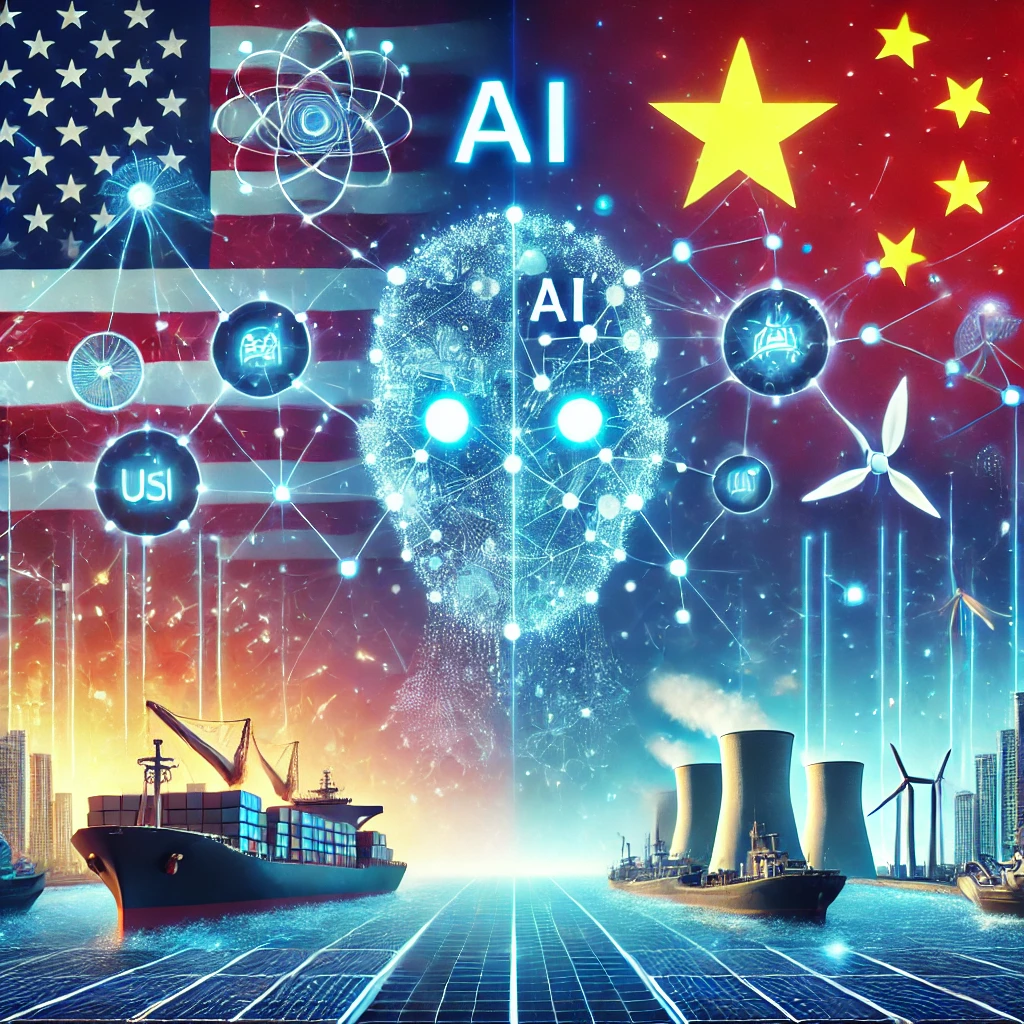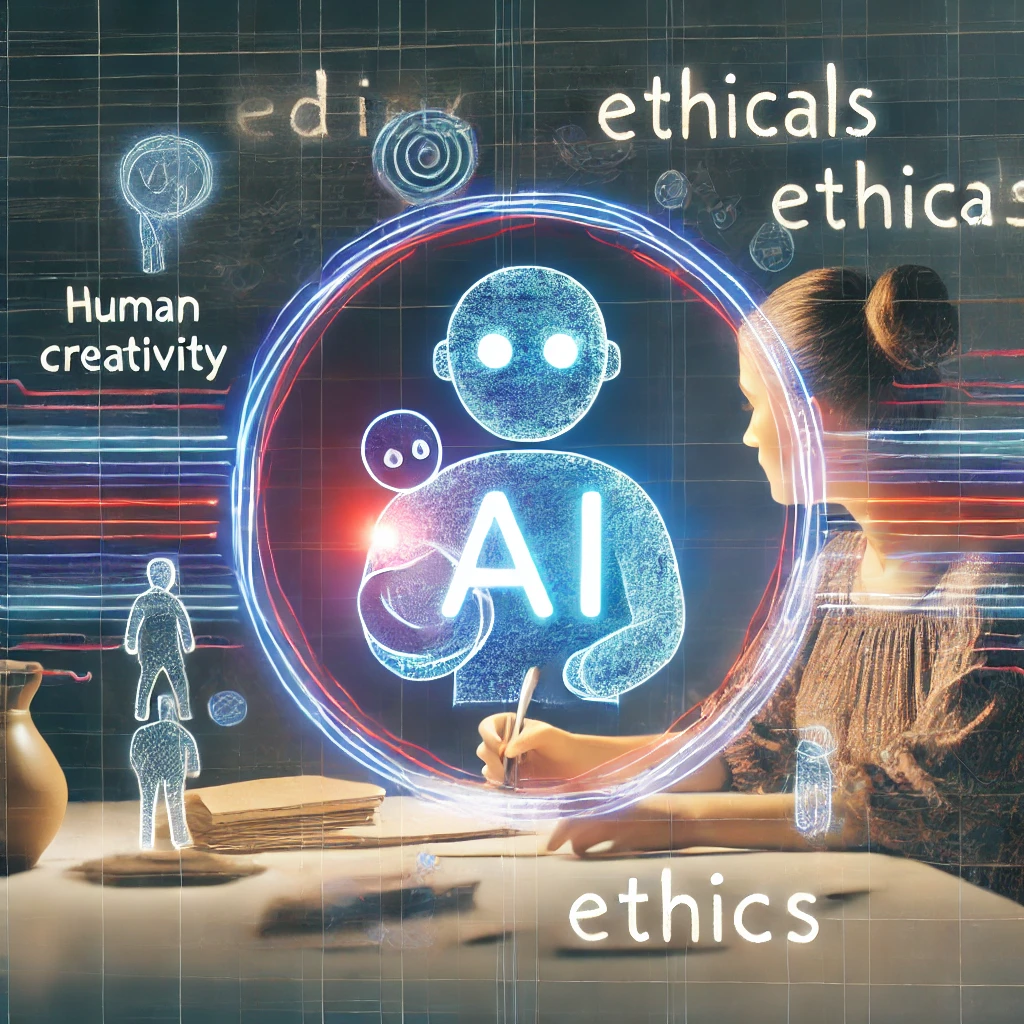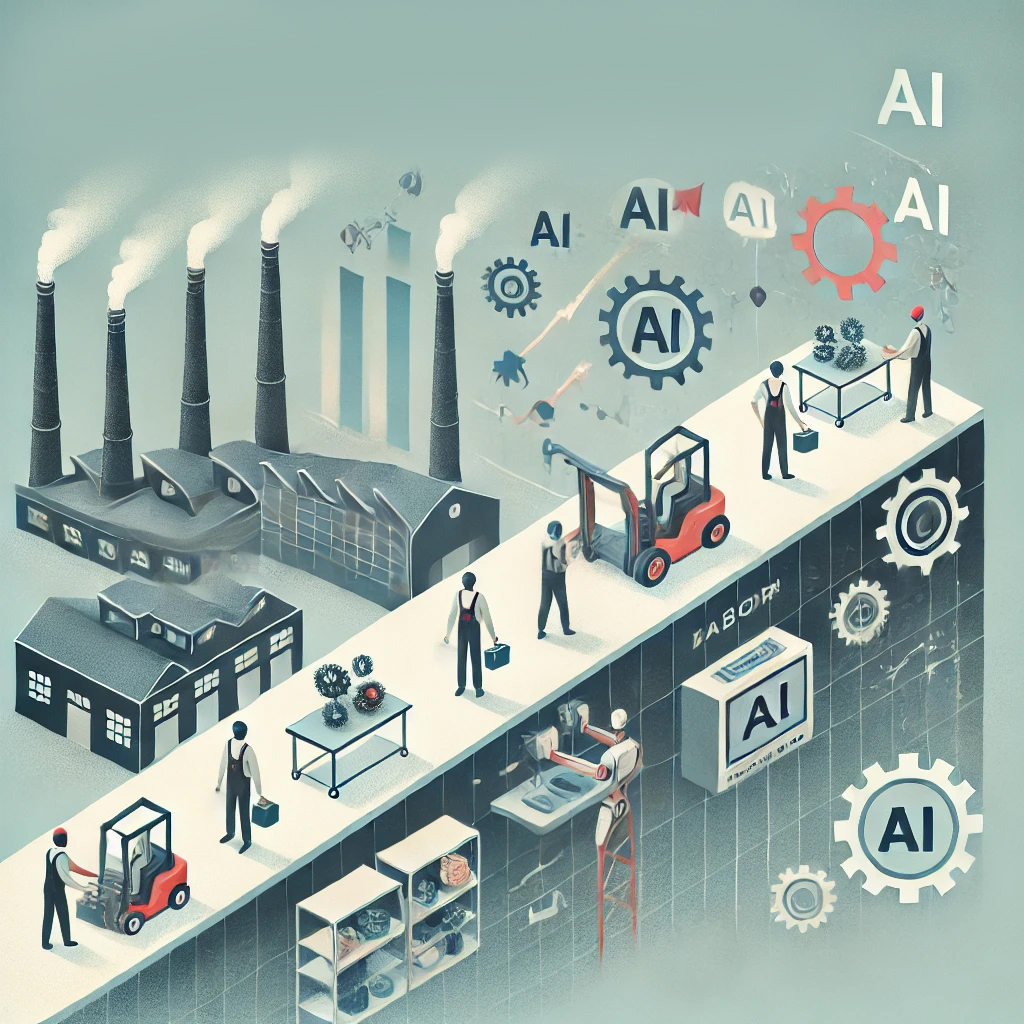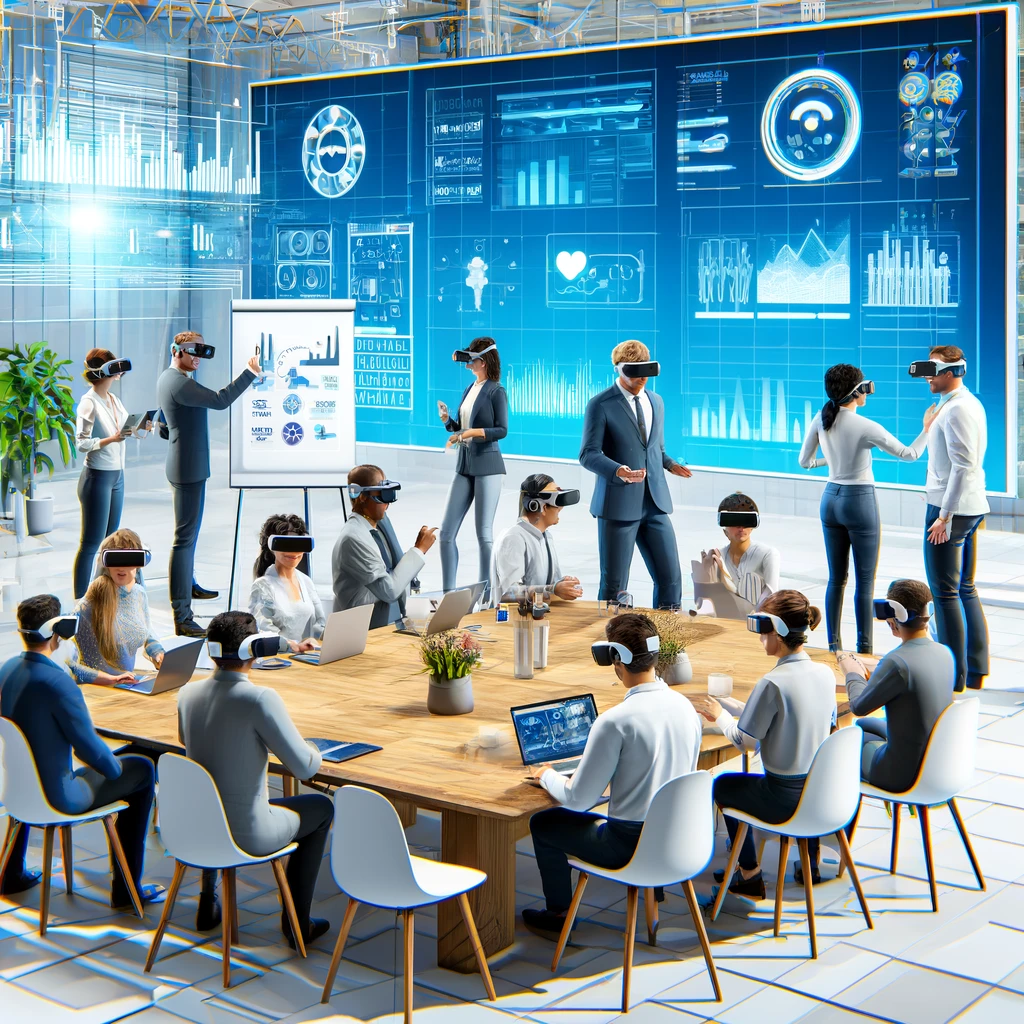Artificial Intelligence, Economy, Change and Development
Artificial intelligence (AI) is considered one of the greatest technological revolutions in recent years. With its potential to deeply impact economic growth, labor markets, and the way work is conducted, AI is bringing many innovations to people’s lives. However, this technology needs to be understood correctly, with its ethical and legal dimensions properly evaluated, and built upon scientific foundations. In this blog post, we will discuss how AI will transform the economy, businesses, and work processes, how it will increase marginal utility by offering new opportunities to individuals, and how it will drive economic growth.
1.AI Revolution in the Economy
AI’s potential to transform the economy is evident in many different fields. First, there is the impact of AI on productivity. Throughout history, technological advancements have accelerated production processes and increased efficiency. Just as the steam engine, followed by electricity and computers, brought about significant changes in work processes during the Industrial Revolution, AI could bring a similar revolution to production processes.
AI has significant potential in increasing productivity. For example, through automation, repetitive and routine tasks can be performed by AI systems, allowing human labor to focus on more creative and strategic tasks. This increase in efficiency brought by AI can help companies reduce costs and gain competitive advantages. Furthermore, this can enable products and services to be offered to consumers at more affordable prices.
AI’s potential to grow the economy is not limited to increased efficiency. AI also has the capacity to create new markets and business models, which could further transform the economy. For instance, innovations brought by AI in sectors such as healthcare, finance, retail, and logistics could lead to the emergence of new job opportunities in these fields. This could contribute to sustainable economic growth.
2.AI’s Impact on the Labor Market
The effects of AI on the labor market include both opportunities and challenges. On the one hand, the automation capabilities of AI could lead to the elimination of certain jobs. However, this could also lay the groundwork for the creation of new jobs. Throughout history, technological advancements have always transformed the labor market. For example, the transition from manual agricultural work to factory-based jobs during the Industrial Revolution led to the disappearance of some jobs, but it also created new ones.
The changes brought by AI and automation could increase the need for retraining and skill acquisition in the labor market. It is expected that, instead of routine and repetitive tasks, skills such as creativity, problem-solving, and critical thinking will become more important. This could encourage workers to acquire new skills and develop themselves.
AI also has the potential to create new job opportunities. For example, new professions such as AI developers, data analysts, and ethics experts may emerge. Additionally, the productivity gains from AI could enable companies to grow and create more employment opportunities. These new job opportunities brought by AI could have a balancing effect on the labor market.
3.Changes in Work Processes
The changes that AI will bring to work processes will be evident both on an individual and organizational level. The automation and digital transformation driven by AI could allow businesses to restructure their processes. AI is already being widely used in areas such as data analytics, forecasting, customer service, and marketing.
AI could revolutionize decision-making processes within businesses. For example, with big data analysis and machine learning algorithms, companies can make faster and more accurate decisions. This allows businesses to become more competitive and adapt more quickly to market conditions.
Furthermore, AI’s support for flexible work models could create significant changes in how work is conducted. Flexible working arrangements, such as remote and hybrid working models, could become more efficient with the use of AI technologies. This would enable employees to achieve a better work-life balance and improve job satisfaction.
4.Marginal Utility and New Employment Opportunities
One of AI’s most important contributions is its potential to increase people’s marginal utility. Marginal utility refers to the benefit derived from consuming an additional unit of a good or service. AI can increase marginal utility by improving people’s quality of life. For example, AI-powered healthcare services could offer personalized treatment options, helping individuals maintain better health. Similarly, the use of AI in education could enhance the quality of learning by providing personalized educational experiences.
The increase in marginal utility brought about by AI could also lead to the creation of new employment opportunities. Specifically, new products and services emerging from AI use could generate new job opportunities. For example, professions such as software engineers developing AI-based applications, data analysts, and robotics experts may emerge due to innovations brought by AI.
Furthermore, the efficiency gains from AI could enable businesses to grow and create more jobs. The innovations brought by AI will not only create job opportunities in the technology sector but also in healthcare, education, finance, and retail, among many other sectors.
5.New Jobs Enabled by Artificial Intelligence
AI can make many tasks possible that were previously too expensive or difficult to perform. For example, AI systems used for medical diagnoses can perform analyses that were previously difficult and costly to carry out manually, quickly and accurately. This can make healthcare more accessible and allow more people to receive high-quality medical services.
Similarly, AI-based robotic systems can perform tasks in industrial production processes where human labor faces challenges or dangers. For example, assembly processes that require high precision can be carried out quickly and flawlessly by AI-based robots. This could reduce production costs while improving product quality.
In this context, AI-powered solutions like Mesai are also noteworthy. Mesai is an AI-powered meeting assistant that records meetings, transcribes them, and generates meeting outcomes through AI analysis, thus enhancing meeting productivity. Normally, this process would require the time and effort of clerks, assistants, and data entry personnel, but Mesai makes it possible to perform a previously unfeasible task. These kinds of innovations simplify work processes and provide cost advantages to businesses.
AI also has the potential to solve environmental problems. For example, AI-powered energy management systems could increase energy efficiency and reduce carbon footprints. Additionally, the use of AI in combating climate change could be a significant step toward ensuring environmental sustainability.
6.Contributions of Artificial Intelligence to Humanity
When understood and used correctly, AI has the potential to create a new revolution for humanity. However, for this revolution to yield positive outcomes, AI must be built on ethical, legal, and scientific foundations.
The ethical dimension is crucial to ensure that AI is developed and used in a manner that respects human rights. For example, ensuring transparency and fairness in AI-based decision-making processes is an ethical necessity. Additionally, respect for human dignity and privacy is essential when using AI.
The legal dimension requires the establishment of regulatory frameworks for AI usage. For instance, determining accountability mechanisms for AI-based systems is a legal necessity. Moreover, legal frameworks must be established to ensure the compensation of damages resulting from the use of AI and to protect users’ rights.
The scientific dimension ensures that AI is developed based on reliable and solid foundations. Supporting AI with scientific research is vital for ensuring that this technology is beneficial for humanity. Additionally, the societal impacts of AI should be studied and managed through a scientific approach.
The contributions of AI to humanity are not limited to technological innovations. When understood and used correctly, this technology has the potential to increase societal welfare. Innovations in areas such as healthcare, education, the environment, and security can enable humanity to step into a better future.
7.Conclusion
Artificial intelligence is a technology with the potential to transform the economy, businesses, and work processes. The innovations brought by AI can grow the economy by increasing efficiency, create new job opportunities to balance the labor market, and increase marginal utility to enhance people’s quality of life. However, for this technology to be beneficial to humanity, it must be built on ethical, legal, and scientific foundations. If understood and used correctly, AI holds the potential to create a new revolution for humanity. This revolution can be a pivotal moment not only for technological innovations but also for increasing societal welfare and ensuring a sustainable future.
Other Articles
